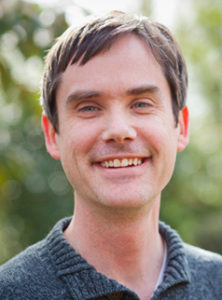Compassionate Living: Declaring Our Interdependence

Modern science is steadily corroborating what many spiritual traditions have known for centuries. Compassion—the recognition of human suffering coupled with the courage to do something to alleviate it—is associated with greater levels of life satisfaction, happiness, resiliency, improved immune system functioning…possibly even increasing lifespan. There’s even actual science that backs up the timeworn cliché “it’s better to give than receive” (click here for a great article highlighting recent research into the mind and body benefits of compassion).
My practice is informed by many of these exciting developments in the field of compassion studies, and one of the things I always stress to clients is that we are all hardwired for compassion—it’s innate (e.g. think about how a parent responds to an infant’s cry…that response doesn’t happen without compassion). We are already compassionate beings, but just like going to the gym, we can train our hearts and minds to make our capacity for compassion stronger.
A fundamental piece of compassion is developing an awareness of interdependence—the sense that as a species we are all connected. I came to a deeper understanding of this practice when attending a foundation course for Emory University’s Cognitively-Based Compassion Training (CBCT) program recently. Dr. Geshe Lobsang Negi, a former Buddhist monk who is the founder of the program (and founder of the Drepung Loseling Monastery in Atlanta) led the training. CBCT was created at Emory University in 2005 in response to an alarming increase in depression and suicide amongst the university’s undergraduate population. The implementation of CBCT has been instrumental in promoting wellbeing amongst the student population at Emory, and CBCT researchers are extending their focus in a variety of settings to studying the beneficial aspects of compassion practice on human health. For more info on the CBCT program, click here:
Here’s an approach that Dr. Negi teaches for gaining a deeper sense of interdependence. Take a moment and consider a talent you have. It can be anything…maybe something as seemingly simple as cooking a pot of spaghetti…or some exceptional feat of derring-do like tightrope walking—doesn’t matter…just something you have gained a sufficient level of competency with and also something that brings you a sense of satisfaction and/or purpose. Then, reflect on ALL the individuals who had a role, either directly or indirectly, in making that talent a part of your life.
Actually, before you do, I’ll share an example from my own life to illustrate this concept…
I love to play the drums. I’ve played since I was about 14 years old. When I reflect on the idea of interdependence—the idea that we cannot thrive in life without the support of others—in relation to this love of playing the drums, it becomes so apparent to me just how many people have supported me in helping me cultivate this talent.
At the age of 14, some friends and I wanted to start our own band. We even had a name for the band. BLATANT DISREGARD. With a name like that, we figured we were well on our way to rock and roll stardom!
There were only a few barriers (somewhat significant barriers mind you) to making Blatant Disregard a reality. For starters, most of us had no actual musical ability. I mean zero talent. Also, only one of us I think actually owned an instrument! I think because my dad had been a drummer, and there was still an old pair of drum sticks that had been lying around the house, I appointment myself as the band’s would-be percussionist. I approached my dad with my idea of taking up the drums, and he was very open to the idea (I think one motivation for him, beyond supporting his son, was to have a drum set in the house that he could play as well). He agreed to help with the purchase of a drum set, with the caveat being that I would take some lessons.
The lessons led to another person who was instrumental in developing my talent. Willy. I have to admit…I never actually got his last name. Willy was my drum teacher. If you are at all familiar with “the look” of 80s rock-n-roll, particularly the hard rock or heavy metal genres, you’ll be able to get an approximate visualization of Willy’s fashion sensibility—e.g. BIG, frizzy hair, ripped, acid washed jeans, tank tops, moon boots (white Reebok hi-tops). I remember he drove a gold corvette with a compact disc that hung from the rear view mirror. Willy had style for miles.
I only took lessons for a short time, just enough to learn the rudimentary basics of playing, but I still am very grateful to Willy for what he taught me. In addition to being musically talented, he was patient and also very enthusiastic—attributes that, to my mind, are essential for a good teacher. I still have fond recollections of stumbling through songs like the Rolling Stones’ “Jumpin’ Jack Flash” and The Temptations’ “Ain’t Too Proud to Beg”—songs I don’t think I had even heard at that point in my life—with a pick up band of similarly-skilled students (Willy taught every instrument at the music store where I took lessons). Willy would serve as our little pick-up band’s lead vocalist and keyboard player, conducting the band and throwing himself rapturously into the performance as if he was on stage at Madison Square Garden.
There have been so many others, like Willy or my dad, who have played vital roles in supporting my love of playing drums. Some I’ve known closely…some I’ve never met. Countless bandmates (sadly, Blatant Disregard’s career was short lived) shared their talents, each inspiring me in their own way and playing a role in shaping my own musical sensibilities. I also have to be thankful for exceedingly tolerant family members, friends, and neighbors—all the individuals who have put up with hearing the same tune played over and over (and over ad infinitum) as I developed my skills. Less directly, music store clerks or fellow musicians selling the instruments I’ve purchased and, by extension, the designers and manufacturers of said instruments, have all been essential to my musical development. And just think? Someone had to own the stores where I purchased the instruments, and city planners, developers, architects, and construction crews all had to devote time and energy to the building of those stores. Oh, and what about the individuals responsible for producing the materials that built those stores? As well as the trucks that transported those materials? Not to mention the roads that the trucks drove on? See how this goes? Once you start “down the rabbit hole” in this examination of interdependence, it’s hard to find an endpoint…
Isolation and a distinctly felt sense of otherness (feeling alone and apart from the group) correlate with high levels of anxiety, depression, and other poor health outcomes. Compassion offers a way out. When we start to closely examine the contributions others have made on our lives—particularly aspects of our lives that our dear to us—the illusion of separateness (and the pain which accompanies it) subsides. We feel less alone and energized to enrich our own lives by, in part, a deeply felt appreciation of others. If you are interested in learning skills to develop your sense of compassion, both for yourself and others, then contact me, Robert Lomax, at [email protected] or call (706) 425-8900.

